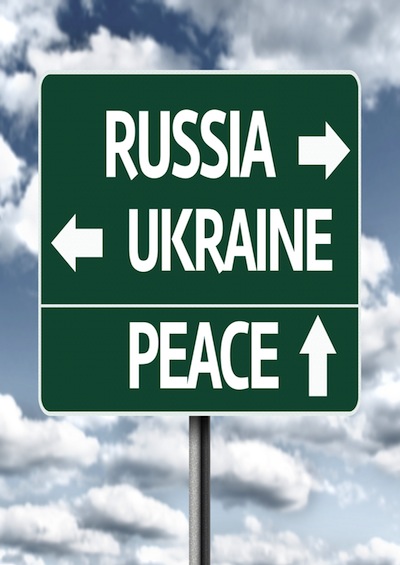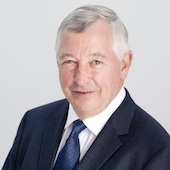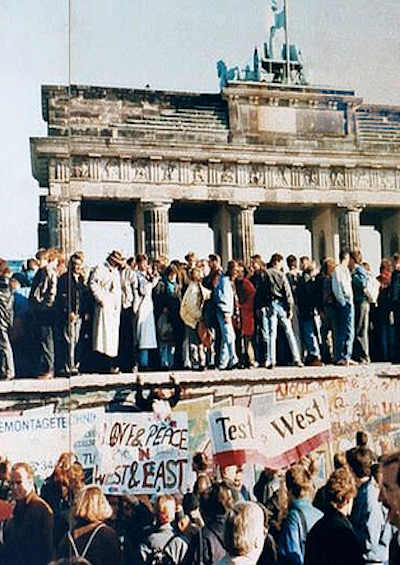Ukraine’s Uncertain Future
A new East-West divide threatens Ukraine’s future.
January 2, 2015

After a year of conflict, where does the confrontation over Ukraine between Russia and the West now stand? Who has won so far – and who has lost?
The situation remains complex not least from a Western Europe point of view because Mr. Putin has not defined exactly what his objectives are.
That could be seen as a good strategy, given that so far the West appears to have retreated on most of the main issues.
The European context
First, the international community – which means in this case mainly the European Union, and within the EU, Germany – will pay the Ukrainian debts for past supplies of Russian gas in order to keep supplies coming through the winter.
Second, Russia will continue to supply Western Europe with gas because it is in the immediate interests of both that the trade continues. Russia needs the revenues, particularly since oil prices are so low. Europe, especially Germany, needs the gas, which could not easily be substituted.
Third, Russia is entrenched in Crimea – defined by President Putin as Russia’s equivalent of Jerusalem — and will not be moving anytime soon. Russia also remains in effective control – short of military occupation – of Eastern Ukraine. The facts on the ground are becoming very firm and hard to change.
Fourth and more negative for Russia, recent events have reminded the Europeans of their dependence on Russian gas, which provides one-third of total supply and 100% of gas needs in some Eastern European countries.
The European Union is preparing – in its slow, methodical but ultimately effective way – to diversify supply and reduce gas use. Dependence on Russia could fall by one-third within five years. That is why Russia is diversifying its gas trade to Asia – a perfectly rational commercial step considering the circumstances.
Fifth, Russia continues to divide opinion within Europe. A strong group of the friends of Russia remains entrenched in Germany, although they are under far more political pressure now.
In addition, groups in Hungary and Bulgaria believe that heavy-handed European sanctions against Moscow have led to the decision to abandon the proposed South Stream gas pipeline, which would have brought more Russian gas into Europe.
Instead, Russia will develop the gas trade through Turkey, which could over time give them a dominant role in the Mediterranean market.
To sum up, Russia’s strong trade links with Europe, built over the last 25 years, are fraying. Russia seems happy to look East rather than West, which — given the miserable state of the European economy — might make a lot of sense.
What is in store for Ukraine?
But what of Ukraine? It is clear now that Ukraine’s aspirations to join the EU – the issue which started the protest a year ago – are dead in the water. Ukraine will not become a member of NATO, or the EU, or any other Western body.
The sense of weariness with the issue in Berlin, Paris and London is overwhelming. Mr. Putin is unloved and regarded as potentially dangerous — hence the escalation of NATO activity in Eastern Europe. But no one wants to take on responsibility for the expensive, unmanageable and, in the view of many, fundamentally corrupt state of Ukraine.
By accident rather than design, a new buffer zone between East and West has been created. The existence of the zone is a reminder that the differences between the two sides have not been closed, even after 25 years of peaceful coexistence since the Berlin Wall fell.
There is no trust. The existing commercial links between Russia and Europe will decline rather than grow. Both sides live in a form of frozen peace, lying somewhere short of open conflict.
The wider and more important issue, however, is whether Russia itself is stable in a world where the price of its main export commodity has fallen by 40% in four months. That is the main story to watch in 2015.
Takeaways
It is clear now that Ukraine's aspirations to join the EU are dead in the water.
After a year of conflict, where does the confrontation over Ukraine between Russia and the West stand now?
The sense of weariness with the Ukraine issue in Berlin, Paris and London is overwhelming.
EU dependence on Russian gas could fall by one-third in five years.
Russia’s strong trade links with Europe, built over the last 25 years, are fraying.
By accident rather than by design, a new buffer zone has been created between the East and the West.
Russia and Europe live in a frozen form of peace, lying somewhere short of open conflict.

